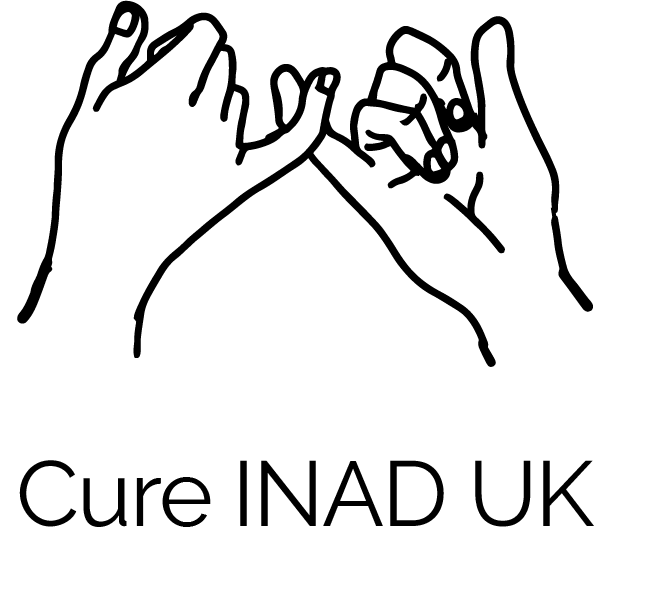Fundraising for the pioneering gene therapy program at University College London (UCL).
Cure INAD UK, together with the newly established INAD Foundation Australia, are proud to be working together to fundraise for the pioneering gene therapy program at University College London (UCL).
Following our recent discussions with Profs. Kurian & Rahim, we are pleased to share the following update:
Research Highlights
Prof Rahim’s mouse model work is advancing and is being prepared for publication.
Dr Soo has prepared a paper on natural history, radiological biomarkers, and disease progression. This is about to be submitted for publication.
Early findings show promise: biomarkers are being entered into machine learning tools to help identify the most reliable markers and form a clinical scale.
Over 300 patients have contributed to the natural history study — providing a strong foundation for future clinical planning.
Path Towards a Clinical Trial
Meetings are intended with viral vector producers.
Engagement is underway with UK regulatory bodies.
Work is ongoing to define outcome measures, validate mouse model data, and approach national grant providers.
The programme is moving towards what we hope will be a first-in-human clinical trial.
Funding the Next Milestone
Both Cure INAD UK and the INAD Foundation Australia now share a clear goal:
to raise £2 million towards the production of the viral vector, required for the gene therapy treatment.
This would represent a significant milestone on the path towards a potential human clinical trial.
It is envisaged that this funding could help bridge the crucial gap between research and treatment.
Trial Access & Participation
It is envisaged that any future trial would be sponsored by Great Ormond Street Hospital (GOSH), a renowned international centre for delivering gene therapy.
It is intended that it would be open to UK and international participants.
The researchers will apply for funding aiming to cover trial-related costs (given that this is a trial and not an established treatment, UCL believes that it should not be dependent on travel insurance for medical treatment abroad, and participants should not be required to fund their own place).
Candidates would be ethically and transparently selected based on eligibility criteria, which will be shared if and when applications open.
The program hopes to embrace geographical diversity, ensuring that families worldwide could have the opportunity to be considered.
UCL have stated:
“If we can demonstrate that gene therapy for INAD is a safe and efficacious therapeutic option, it is very much our intent to find a way to bring it to patients suffering from other PLA2G6-associated disorders such as ANAD and PLA2G6-related dystonia-parkinsonism, where we would also hope to achieve clinical benefit for affected patients”.
What this means
This update marks an encouraging step for the INAD community. With continued collaboration, research progress, and support, we hope to move closer to a treatment option for children with INAD worldwide.
How You Can Help
We want to raise the £2 million needed to fund the production of the viral vector, and we need to do this quickly. Every donation, fundraiser, or share helps bring this vision closer to reality.
Donate. Fundraise. Share our story. Together, we can build hope for the future.
We will continue to provide updates as progress unfolds.
The INAD Foundation Australia is preparing to launch and accept donations that will go towards this gene therapy programme. Cure INAD UK are also accepting donations.
Together, we are stronger. Together, we are closer to a cure.

